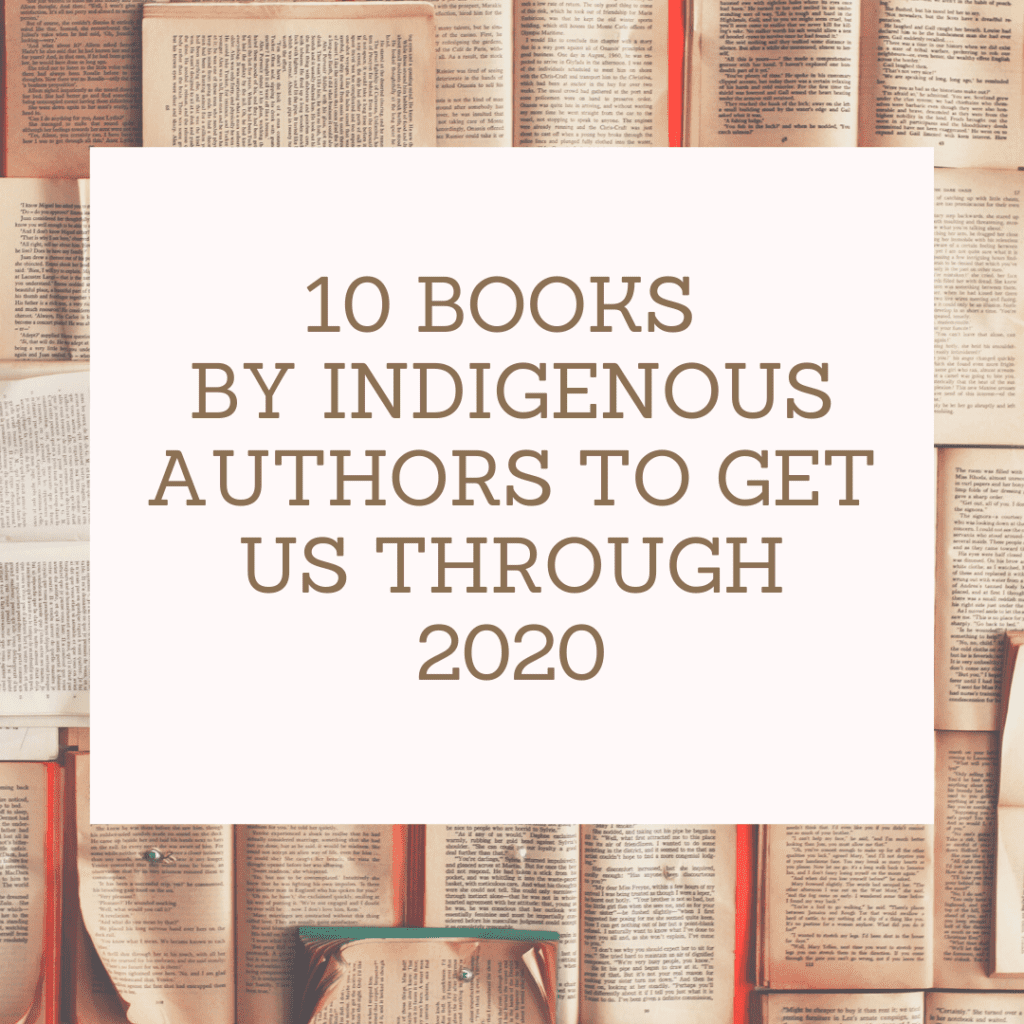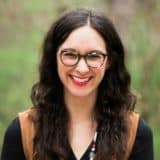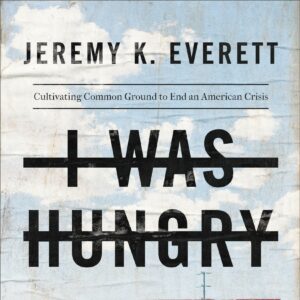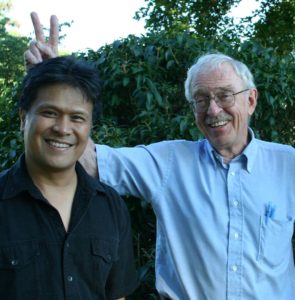
Indigenous bodies are bodies that remember.
—Native: Identity, Belonging and Rediscovering God
We are a few months into 2020, and each month has felt like years. The news cycles continue to bring stories of pain, loss, trauma, and inequity, and in the midst of it, we are all trying to be better humans toward each other and toward the earth.
So, in a time where we are asking how to be better connected, I want to suggest 10 books by Indigenous authors that will help ground us to the land and to the words of peoples who have been largely ignored throughout our history, yet hold a deep, abiding resilience that continues to inspire many around the world.
Indigenous ways of belonging help remind us that when we invest in the good of the earth, one another, and our creature kin, we invest in a better, more equitable future for all of us. May these books guide us onward together.
The Night Watchman
by Louise Erdrich
(Turtle Mountain Band Chippewa)
Really, read any of Erdrich’s books, and be sure to support her bookstore, Birchbark Books!
This book is a story based off the life of Erdrich’s grandfather, who worked as a night watchman and carried the fight against Native dispossession from rural North Dakota all the way to Washington, D.C. This powerful novel explores themes of love and death with lightness and gravity, and unfolds with the elegant prose, sly humor, and depth of feeling of a master craftsman.
One Story, One Song
by Richard Wagamese
(Ojibwe)
I’ve come back to this book again and again. These essays are beautiful, and help ground us to the land and to our collective wholeness.
Whether the topic is learning from his grade five teacher about Martin Luther King, gleaning understanding from a wolf track, lighting a fire for the first time without matches, or finding the universe in an eagle feather, these stories exhibit the warmth, wisdom, and generosity that made One Native Life so popular. As always, in these pages, the land serves as Wagamese’s guide.
Native: Identity, Belonging and Rediscovering God
by Kaitlin Curtice
(Potawatomi)
My second book, out May 5th, deals with difficult conversations around decolonizing faith and exploring the complexities of identity.
Kaitlin Curtice draws on her personal journey, poetry, imagery, and stories of the Potawatomi people to address themes at the forefront of today’s discussions of faith and culture in a positive and constructive way. She encourages us to embrace our own origins and to share and listen to each other’s stories so we can build a more inclusive and diverse future.
“All the Real Indians Died Off” and 20 Other Myths about Native Americans
by Dina Gilio-Whitaker and Roxanne Dunbar-Ortiz
(Gilio-Whitaker from the Colville Confederated Tribes)
Read this book and then carry it with you into your school systems, churches, and social circles. We need to be having these conversations.
In this enlightening book, scholars and activists Roxanne Dunbar-Ortiz and Dina Gilio-Whitaker tackle a wide range of myths about Native American culture and history that have misinformed generations. Each chapter deftly shows how these myths are rooted in the fears and prejudice of European settlers and in the larger political agendas of a settler state aimed at acquiring Indigenous land and tied to narratives of erasure and disappearance. Accessibly written and revelatory, “All the Real Indians Died Off” challenges readers to rethink what they have been taught about Native Americans and history.
Postcolonial Love Poem
by Natalie Diaz
(Gila River Indian Community)
These poems are real and raw. Please read more Indigenous poetry, and let the imagery change you.
Postcolonial Love Poem is an anthem of desire against erasure. Natalie Diaz’s brilliant second collection demands that every body carried in its pages―bodies of language, land, rivers, suffering brothers, enemies, and lovers―be touched and held as beloveds.
Words Like Thunder: New and Used Anishinaabe Prayers
by Lois Beardslee
(Ojibwe/Lacandon)
Out April 28th, this book is one of many that shows how Indigenous culture/belonging/ideas shift and change over time while still holding our identities, showing that we truly exist in many liminal spaces.
More than anything, Beardslee emphasizes the notion that indigenous peoples are competent and wonderful, worthy of praise, and whose modernity is a function of their survival. She writes unapologetically with a strong ethnic identity as a woman of color who witnessed and experienced community loss of resources that defined her culture. Her stories transcend generations, time, and geographical boundaries—varying in voice between first person or that of her elders or children—resulting in a collective appeal.
An American Sunrise: Poems
by Joy Harjo
(First Native American/Muscogee Poet Laureate in the United States)
We should all be reading from the US Poet Laureate, and I’m so grateful it’s an Indigenous woman. Read as much of Harjo’s work as you can. As someone living on Muscogee Creek land, this is an important book for my understanding of this land and its people.
In the early 1800s, the Mvskoke people were forcibly removed from their original lands east of the Mississippi to Indian Territory, which is now part of Oklahoma. Two hundred years later, Joy Harjo returns to her family’s lands and opens a dialogue with history. In An American Sunrise, Harjo finds blessings in the abundance of her homeland and confronts the site where her people, and other indigenous families, essentially disappeared. From her memory of her mother’s death, to her beginnings in the native rights movement, to the fresh road with her beloved, Harjo’s personal life intertwines with tribal histories to create a space for renewed beginnings.
Powwow Summer: A Family Celebrates the Circle of Life
by Marcie R. Rendon
(White Earth Nation)
Thanks to Dr. Debbie Reese for this book recommendation and please visit her website for amazing recommendations for children’s literature. Circle imagery is so important in our cultures, and ceremony grounds us to ourselves, the land, and God. A great book to read with your family/friends.
Sharyl and Windy Downwind and their children travel from their home on the Red Lake Reservation in Minnesota to powwows all around the region. For the past year, their oldest daughter, Shian, has been honored as junior princess for Bug-o-nay-ge-shig School. At the Leech Lake Memorial Day gathering, Shian will hand over her crown to the next princess. Later that summer, the family attends the Red Lake Fourth of July powwow seeking healing and comfort. Windy is mourning his mother, who recently passed away, and also honoring her by dancing at the powwow. At ceremonies and in daily life, Windy and Sharyl celebrate Anishinaabe culture by teaching their children traditional skills, dance steps, and lifeways, all part of the circle of community and the seasons and life.
All Our Relations: Native Struggles for Land and Life
by Winona LaDuke
(Ojibwe)
LaDuke’s work is so important for America today. Honor the Earth, LaDuke’s organization, paves the way for so many important conversations on climate change and the suffering of Indigenous peoples under many of America’s discriminatory policies. Support grassroots activism when and where you can.
This thoughtful, in-depth account of Native struggles against environmental and cultural degradation features chapters on the Seminoles, the Anishinaabeg, the Innu, the Northern Cheyenne, and the Mohawks, among others. Filled with inspiring testimonies of struggles for survival, each page of this volume speaks forcefully for self-determination and community.
Jingle Dancer
by Cynthia Leitich Smith
(Muscogee Creek)
Our children need to read books by Indigenous authors, and here is an amazing place to begin. Read with your children from modern authors, so they understand that our cultures are still thriving and changing as we change.
Jenna loves the tradition of jingle dancing that has been shared by generations of women in her family, and she hopes to dance at the next powwow. But she has a problem—how will her dress sing if it has no jingles?
The cone-shaped jingles sewn to Grandma Wolfe’s dress sing tink, tink, tink, tink.
Jenna’s heart beats to the brum, brum, brum, brum of the powwow drum as she daydreams about the clinking song of her grandma’s jingle dancing.
We are not the things we accumulate. We are not the things we deem important. We are story. All of us. What comes to matter then is the creation of the best possible story we can while we’re here; you, me, us, together. When we can do that and we take the time to share those stories with each other, we get bigger inside, we see each other, we recognize our kinship—we change the world, one story at a time…
― Richard Wagamese
Kaitlin B. Curtice is a Native American Christian author, speaker and worship leader, and the author of Glory Happening: Finding the Divine in Everyday Places. As an enrolled member of the Potawatomi Citizen Band and someone who has grown up in the Christian faith, Kaitlin writes on the intersection of Native American spirituality, mystic faith in everyday life, and the church. She is a contributor to Sojourners, and you can also find her work on Patheos Progressive Christian. This article first appeared on her website, and is reprinted by permission.
is a Native American Christian author, speaker and worship leader, and the author of Glory Happening: Finding the Divine in Everyday Places. As an enrolled member of the Potawatomi Citizen Band and someone who has grown up in the Christian faith, Kaitlin writes on the intersection of Native American spirituality, mystic faith in everyday life, and the church. She is a contributor to Sojourners, and you can also find her work on Patheos Progressive Christian. This article first appeared on her website, and is reprinted by permission.


